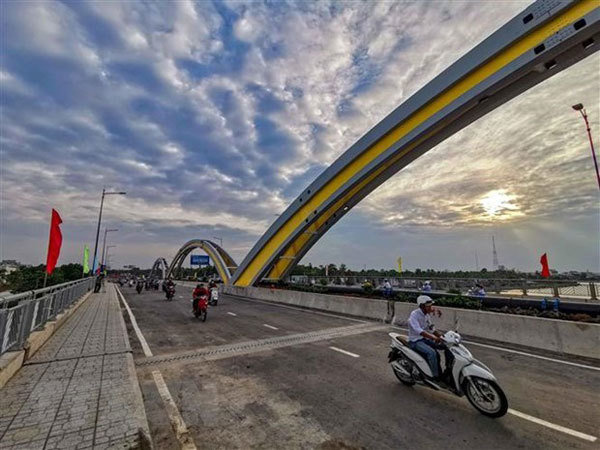 |
| Vehicles move on Quang Trung Bridge in Can Tho City. (Photo: VNA) |
At a meeting with local leaders on April 6, an ADB representative said the proposal is based on the outcomes of a working session between ADB and the municipal People’s Committee in late October last year, as well as the bank’s following trips for energy auditing in the city.
The project will develop smart city and energy efficient infrastructure with LED lights and smart technology used for public lighting and public buildings, aiming to save energy, reduce carbon emissions, and improve socio-economic benefits.
In particular, the 19 community healthcare buildings entitled to this project can be modernised via the application of many different energy efficient measures, which can help improve the cold supply chain to serve COVID-19 vaccination.
Au Minh Tuan, an ADB senior specialist for energy project development, said the bank is introducing the SEECP to six provinces and cities across Vietnam, namely Hanoi, Quang Ninh, Quang Nam, Da Nang, Lam Dong, and Can Tho.
For the project in Can Tho, it suggested two components covering smart lighting and smart buildings that will be carried out at the respective costs of 1.279 trillion VND and 282 billion VND.
The SEECP Can Tho will be co-financed by the Green Climate Fund (GCF) and the city, and ADB will manage the GCF’s funding sources, Tuan noted.
The first phase of this project is expected to last from April 2022 to December 2025.
Vice Chairman of the Can Tho People’s Committee Nguyen Van Hong said local authorities will hold meetings to discuss the project’s components and capital, and they will notify ADB of the outcomes.
VNA

ADB policy expertise lending to rising Vietnam relationship
Since its resumption of operations in Vietnam in 1993, the Asian Development Bank (ADB) has been part of the country’s success story.